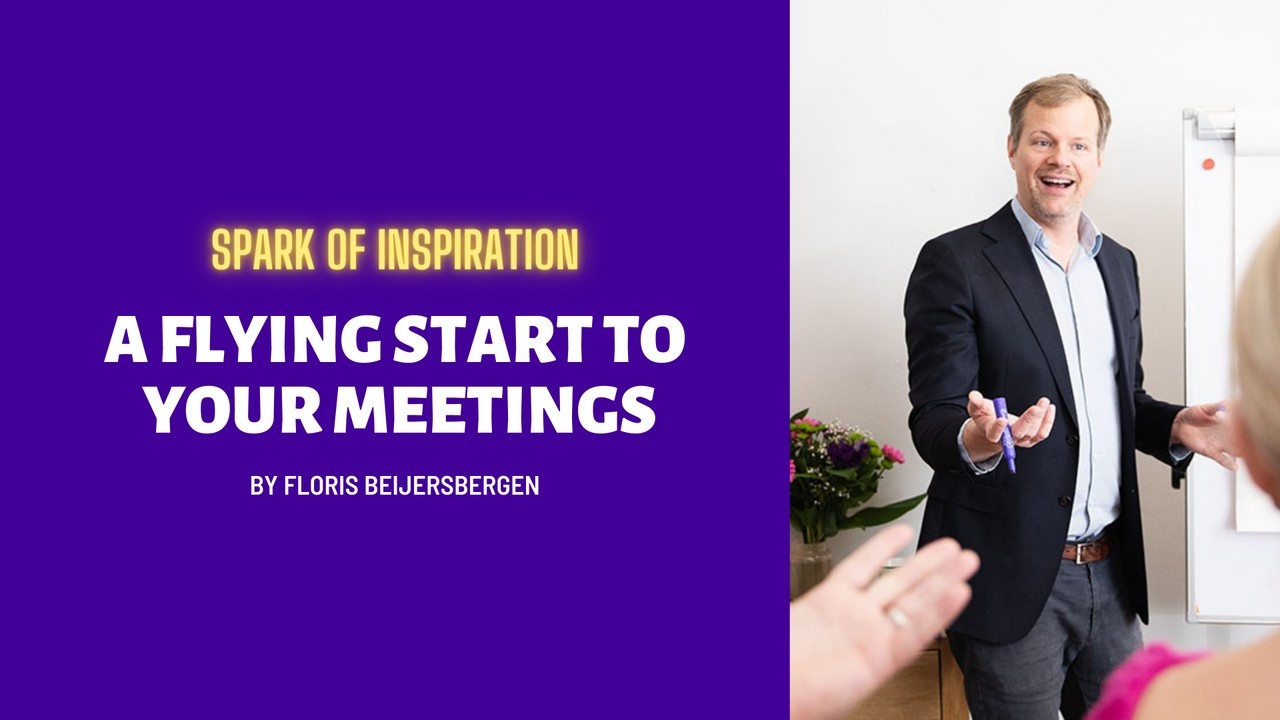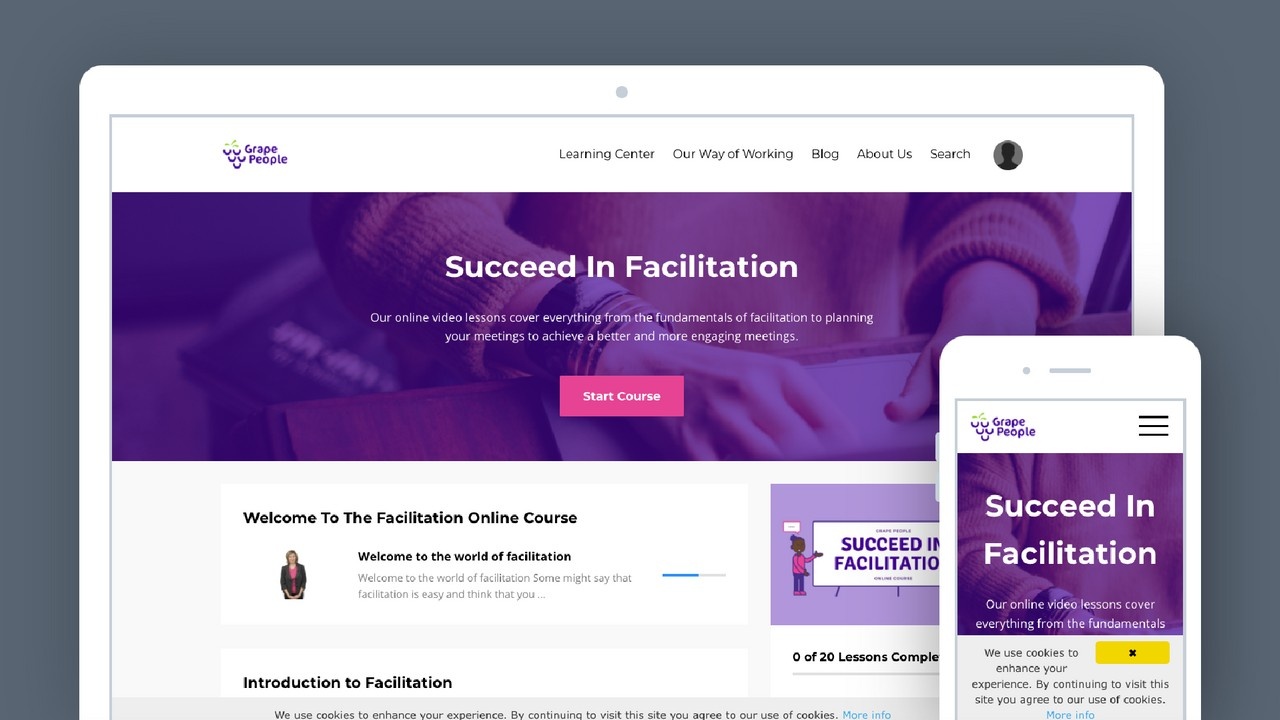Spark of Inspiration: A flying start to meeting

‘Let’s wait another minute for the last remaining participants, and then we’ll get started…. (cricket sounds).’
This might have been the most used line in the past pandemic years when people started their virtual meetings.
Why is this problematic?
We are all human beings, and the fact is that we have emotions. When people join any meeting, emotions are already involved. Everyone has things on their minds: ‘What about upcoming deadlines,’ ‘how do I manage my work/life balance this week?’ or even mixed thoughts and experiences with their colleagues.
The host should help participants feel psychologically safe and gain focus as quickly as possible to run a successful meeting. Having these conditions present, we can expect a group to really focus, get to know each other, align, and have an outcome.
Let’s have a look on what is helpful to achieve focus and psychological safety in the first five minutes of your meeting:
1. Give something to look forward to
Remember the last time you started to watch a series on Netflix after seeing the 30 seconds trailer in the menu first? In film and theatre, it works the same way as in a workshop. An audience is more likely to be involved and stay focused if there is something to look forward to and if they have a hint of an idea of what’s going to happen.
- Manage the expectations in the invitation of the event, what is there to achieve, what is expected of me? Why am I supposed to be there?
- Let the group experience something in the first five minutes that surprises them and makes them curious about what else there is still coming. For example, to ask the participants to choose a picture that reflects their connection to the topic of the workshop or to ask them to collect a personal object that tells something special about them so they can use this for introducing themselves.
2. Have a clear plan for the startup time
Think, plan, act. It’s much easier to find focus on yourself if you have a plan in front of you. What are the outcomes of the day, what is expected of the participants? How am I going to interact in the first couple of minutes? Some ideas to take into consideration:
- Welcome everyone individually, and thank you for joining and being on time
- Have people write something in the chat or on a shared document about their week, holiday, something that made them happy lately. Let them react to each other
- Communicate the real start time, with a timer, for example, in case you expect latecomers. It is useful to have a visible countdown clock so everyone knows when it’s time to have full focus on the meeting and its goals. There are great apps that show countdowns for both virtual and physical training.
3. Bring yourself and be present
As a facilitator of the meeting, we also bring in our own emotions, feelings, and insecurities. Even though we have a good plan and tools in place, we are not robots. How to manage your own emotions? Some ideas:
- Being proud of who you are, nobody’s perfect, and your own personality makes it interesting.
- If the sessions are recorded, watch them later and focus on what you like about your own role.
- Have a warm-up ritual, a walk before a meeting, look through the process, meditate, drink a good coffee. Allow yourself transfer time.
- Engage in the check-in activities with honesty; if you have had a great week, share with the group; if you didn’t, share that.
- Increase the energy level always about 30% more than the participants
- Express how you experience the mood of the group and keep checking it during the workshop
There are numerous ways that a meeting can start, expected as well as unexpected. Having thought about these three bullet points before your next meeting will increase your chances of having a flying start and ease the process of the rest of the meeting and the content you are covering. Every group is different, might have different needs and emotions, so stay close to yourself and experiment!
Our facilitation course gives you a simple and effective framework for designing workshops and the best tools for each stage to guarantee your workshop success.
This course is a great way to learn how to succeed in facilitation.
Join the course >>
⭐ I want to become a certified facilitator >> ⭐
About the trainer:
For over a decade, Floris Beijersbergen has used his facilitation and training talent in many different settings. With a background in intercultural communication as well as theatre, Floris is helping organizations to develop their teams, implementing strategy and use interactive ways of working.
Get to know Floris: LinkedIn
Feel free to reach out in case you would like a tailored training
for your team or organization: [email protected].
We are more than happy to help you!



